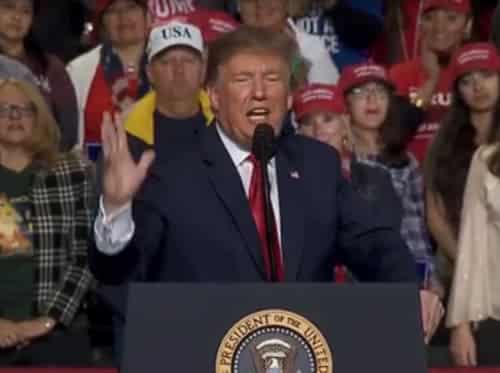U.S. congressional negotiators have reached a deal, in principle, to fund the government and avoid another government shutdown at the end of the week.
The bipartisan group has not made the details public, but congressional aides said the agreement includes about $1.4 billion to build 88 kilometers of new fencing at the U.S.-Mexico border. It would also add technology upgrades for screening at border entry points, as well as more customs officers and humanitarian aid.
For several months, President Donald Trump demanded $5.7 billion for his desired border wall, while Democrats labeled the proposal as wasteful and ineffective and said they would only approve border security measures without any money for a wall.
The tentative deal represents a degree of compromise.
[content id=”79272″]
Not a single one of us is going to get every single thing we want. But nobody does,” said Sen. Patrick Leahy, a Democrat who is part of the negotiating committee. “We’re going to get what is best for the United States.”
It is not clear if Trump would sign a deal that does not have all of his wall funding, but Sen. Richard Shelby, a Republican who leads the Senate Appropriations Committee, said he believes from discussions with the Trump administration that the tentative deal will have the president’s support.
Sen. Shelley Moore Capito, another Republican on the negotiating committee, said she remains “cautiously optimistic” and looks forward to finalizing the details.
But there remains some opposition from fellow Republicans. Rep. Mark Meadows called the agreement “hardly a serious attempt to secure our border” and said “Congress is not doing its job.”
The White House and lawmakers are facing a Friday deadline, when funding runs out again for about a quarter of government operations, to avert a new closure three weeks after a record 35-day shutdown was ended Jan. 25.
Acting White House Chief of Staff Mick Mulvaney told NBC News on Sunday that if Trump did not get as much border wall money as he wants, he could shift tactics and draw from other government funding, a move that would be sure to draw a legal challenge from Democrats.
Source: VOA







